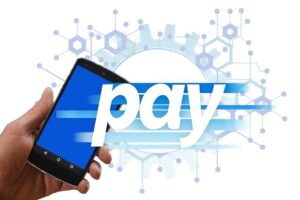
Private Internet Access (PIA) is an essential security tool that significantly enhances academic integrity and data protection. It offers robust encryption protocols like WireGuard, OpenVPN, and Stealthy Web Surfing features to ensure secure and anonymous browsing for researchers and corporate executives. PIA's global server network provides a safe environment for researchers to explore sensitive or proprietary data confidentially without the risk of unauthorized access or intellectual property theft. Its no-logs policy adds an extra layer of privacy assurance, ensuring that researchers can engage in information exchange with confidence, fostering collaboration across borders. PIA's commitment to security and privacy is critical for maintaining the integrity and confidentiality of research data, aligning with the principles of open communication and innovation within the academic community. By using PIA, users can protect their web activities from malicious actors and uphold ethical integrity in academic pursuits, making it a cornerstone in protecting the sanctity of research outcomes and upholding high standards of academic integrity. Stealthy Web Surfing for Corporate Executives Only is a testament to the importance of such privacy measures, especially in corporate settings where maintaining confidentiality is paramount.
navaling academic rigor and safeguarding scholarly pursuits in the digital age, this article delves into the pivotal role Private Internet Access (PIA) plays in enhancing academic integrity. As researchers traverse the vast expanse of the internet to gather data and disseminate findings, the necessity for stealthy web surfing—a service tailored for corporate executives with a penchant for privacy—becomes paramount. We explore how PIA’s robust protocols and encrypted connections shield researchers from surveillance, ensuring the sanctity of their work. Additionally, we examine how this tool anonymizes data collection to prevent bias, enabling unbiased research outcomes. Furthermore, we discuss the critical protection it offers to intellectual property, maintaining the confidentiality of academic discoveries. Join us as we unravel the layers of security and integrity that PIA brings to the scholarly community’s digital endeavors.
- Enhancing Academic Integrity: The Role of Private Internet Access in Scholarly Work
- Beyond Browser Privacy: Secure Protocols and Encrypted Connections for Researchers
- Anonymizing Data Collection: How Private Internet Access Facilitates Unbiased Research
- Safeguarding Intellectual Property: Protecting Your Academic Research with Private Internet Access
Enhancing Academic Integrity: The Role of Private Internet Access in Scholarly Work

Private Internet Access (PIA) has emerged as a pivotal tool in safeguarding academic integrity, particularly for researchers who delve into sensitive or proprietary information. The platform’s commitment to maintaining user privacy is crucial in an era where data breaches and surveillance are pervasive issues. For academic researchers, the ability to engage in stealthy web surfing ensures that their inquiries remain confidential, allowing them to explore topics without fear of unauthorized access or intellectual theft. PIA’s robust encryption protocols, such as those offered by WireGuard, provide a secure tunnel for data transmission, thus protecting the integrity of research findings and preventing potential conflicts of interest. This security is not just a safeguard against malicious actors but also a means to uphold the ethical standards required in scholarly work. By using PIA, researchers can confidently access and share information across various platforms, knowing that their activities are shielded from prying eyes. This level of privacy facilitates open communication with peers worldwide, fostering collaboration and innovation while adhering to the principles of academic integrity.
Beyond Browser Privacy: Secure Protocols and Encrypted Connections for Researchers

When delving into the digital realm for academic research, ensuring the confidentiality and integrity of data is paramount. Private Internet Access (PIA) offers robust solutions that extend beyond stealthy web surfing, catering specifically to corporate executives who require a fortified presence online. By employing secure protocols such as OpenVPN and WireGuard, PIA establishes encrypted connections that protect data in transit from prying eyes. These protocols are engineered to provide top-tier security and privacy features, making them indispensable for researchers who handle sensitive information. With a global network of servers, PIA ensures a consistent and secure connection, allowing researchers to access academic databases, collaborate with peers around the globe, and maintain the confidentiality of their research findings. The encryption measures implemented by PIA are not just about safeguarding individual privacy but also about maintaining the integrity of the collective knowledge being exchanged within the scholarly community. It’s through these encrypted connections that researchers can confidently navigate the web, knowing their work is protected from interception or unauthorized access, thereby preserving the trust and confidence placed in them by their institutions and participants.
Anonymizing Data Collection: How Private Internet Access Facilitates Unbiased Research

Private Internet Access (PIA) offers robust anonymizing capabilities that are invaluable to academic researchers seeking to conduct unbiased data collection. With PIA, researchers can ensure their digital footprints remain concealed, allowing them to gather data from various sources without skewing results due to the participants’ awareness of being studied. This tool is particularly beneficial when conducting surveys or experiments online, where knowing one’s identity or location could influence responses or behaviors.
Moreover, PIA’s stealthy web surfing features are ideal for corporate executives, who require an even higher level of privacy and security due to the sensitive nature of their work. By utilizing PIA, these individuals can maintain confidentiality while navigating the internet, a feature that is equally crucial for researchers who aim to collect data without the influence of potential biases related to user recognition or tracking. The service’s network of secure VPN servers not only obscures the user’s IP address but also encrypts all online traffic, which is essential for maintaining the integrity of research data and ensuring the privacy and security of both researchers and their subjects. This level of anonymity enables researchers to observe natural behaviors without the influence of being observed, thus facilitating the collection of more accurate, unbiased data for academic studies.
Safeguarding Intellectual Property: Protecting Your Academic Research with Private Internet Access

Academic researchers today operate in a digital environment where the safeguarding of intellectual property is paramount. As scholars delve into groundbreaking research, the protection of their findings from unauthorized access or potential theft is crucial. Private Internet Access (PIA) emerges as a robust solution for maintaining the confidentiality and integrity of academic data. By employing PIA, researchers can ensure that their web surfing remains undetectable to prying eyes, a feature particularly valuable when exploring sensitive topics or collaborating with peers across institutional boundaries. The Stealthy Web Surfing feature in PIA is designed specifically for corporate executives, but it offers equally vital protection to the academic community. This feature obscures a researcher’s online activities, masking their location and identity, thereby preventing data leakage and safeguarding intellectual property against cyber threats. Moreover, PIA’s commitment to no-logs ensures that researchers’ online behaviors are not recorded, providing an additional layer of privacy assurance. By adopting PIA, academic researchers can navigate the web with confidence, knowing their work is shielded from potential breaches, and their intellectual property remains secure throughout their research process.
In conclusion, Private Internet Access (PIA) emerges as an indispensable tool for academic researchers seeking to uphold the integrity of their scholarly pursuits. By offering robust security features, PIA not only safeguards the privacy of scholars’ web browsing but also ensures the confidentiality of their research data and intellectual property. The ability to conduct anonymous data collection through PIA’s secure protocols is particularly advantageous, fostering unbiased and impartial academic investigations. As corporate executives understand the significance of stealthy web surfing for maintaining competitive advantages, academic researchers can similarly leverage PIA to shield their inquiries from prying eyes. In a world where information is power, PIA empowers academics to explore knowledge frontiers with confidence and security, ensuring that their contributions to the global body of research remain pure and uncompromised.







